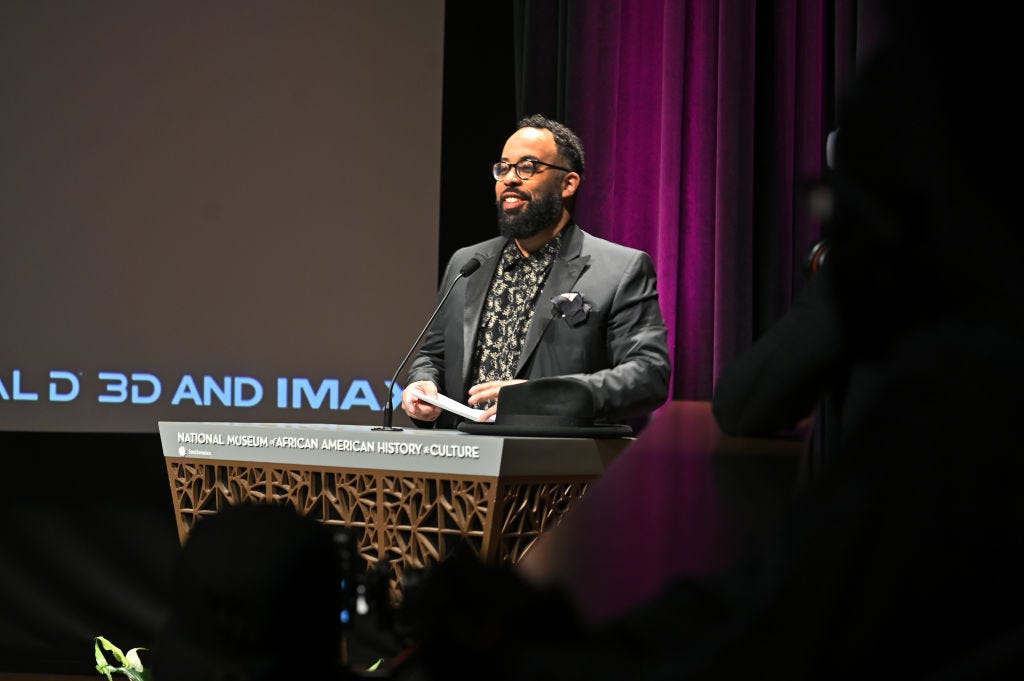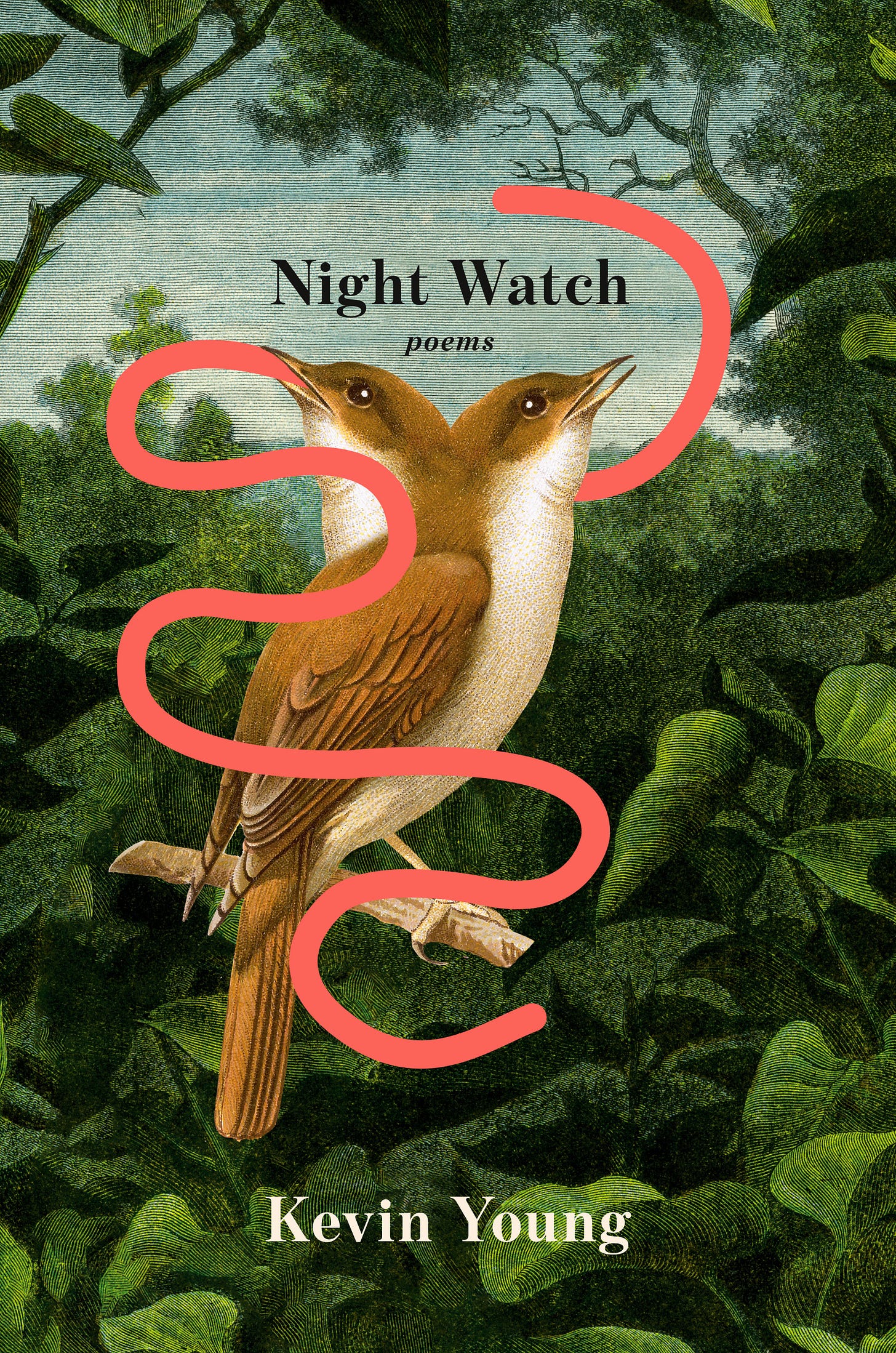In praise of poetry
Our September Ink Book Club selection is "Night Watch," by poet Kevin Young
The very word “poetry” is soothing. When the world is at its harshest, poetry stills the noise. Joy. Poets raise their voices in reverence and in protest. Poems mourn (elegies), they celebrate (odes). They express the inexpressible or transform the otherwise mundane into sources of wonder. Or, as Audre Lorde wrote, “poetry is not a luxury. It is a vital necessity of our existence.”
Kevin Young is among our most esteemed poets. His latest collection, Night Watch, which publishes this week, is The Ink Book Club’s September selection. In a starred, pre-publication review, Publisher’s Weekly said the volume contains “unforgettable moments of existential insight.” When we talked with poet, actor, and activist Amber Tamblyn she recommended Young’s work as some of today’s best political poetry. Actor Mary Louise Parker wrote that “there is so much music to Young’s work that it’s often assumed he’s a musician.”
Young is currently the poetry editor for The New Yorker. He’s also a scholar and curator who ran the New York Public Library’s Schomburg Center for Research in Black Culture from 2016 to 2021, when he became the director of the Smithsonian’s National Museum of African American History and Culture; he stepped down from that post earlier this year.
Join us this Wednesday, September 3, at 12:30 p.m. Eastern to discuss Night Watch with the author! This will be the first of two live conversations we’ll have with the acclaimed poet. The second will take place on Wednesday, September 24, also at 12:30 p.m. Eastern, after you’ve had the chance to read his latest volume. The Book Club is open to all supporting subscribers of The Ink, so join us today!
Young says he began writing the poems that became Night Watch nearly twenty years ago. He’d begun composing poems about his late father, whose death especially informs a poem like “Cormorant,” which opens the book. But, Young says, “the poems became about loss in a larger sense.” And “along the way, a number of figures started appearing throughout the book, whether poets like John Keats or Samuel Beckett; the conjoined twins Millie and Christine McCoy—born enslaved and later performing in freedom—and family figures like my mother and her folk sayings.”
Young has long cited the influence of African American spirituals on his work, and in advance of our talk later this week, we asked him about the importance of this centuries-old tradition on his work. He said this:
“ I carry the spirituals with me, having grown up with the gospel of the AME church but also the yearning the spirituals provide. Some of that is in the book, I hope–along with the ordering of the universe that African American spirituals and African cosmologies provide. Such ordering is something Dante also did, and I was able, in writing through Dante in the book’s last sequence, undertakes a journey from the inferno to paradise.
This of course is what the spirituals promised, knowing that the journey could be rocky—went down to the rock to hide my face, rock cried out, no hiding place. Or, as another sings, sometimes I feel like a motherless child, a long long way from home. The spirituals don’t promise safety but something like redemption—and literal escape for the enslaved. As I’ve said before, you have to imagine freedom before you can find it.
This rich inheritance always urges me on. It helped that as I was starting this book I was regularly singing to my infant son folk songs and spirituals, including “Ezekiel Saw the Wheel”—whose imagery is Dantesque in its sense of gyres in the sky and “wheels in a wheel.” Such song makes its way into the book.”
Among the subjects we will be discussing in our conversations with Young this month are the role of poetry in our current culture, as well as what inspired the poems in Night Watch. We hope you’ll join us.






